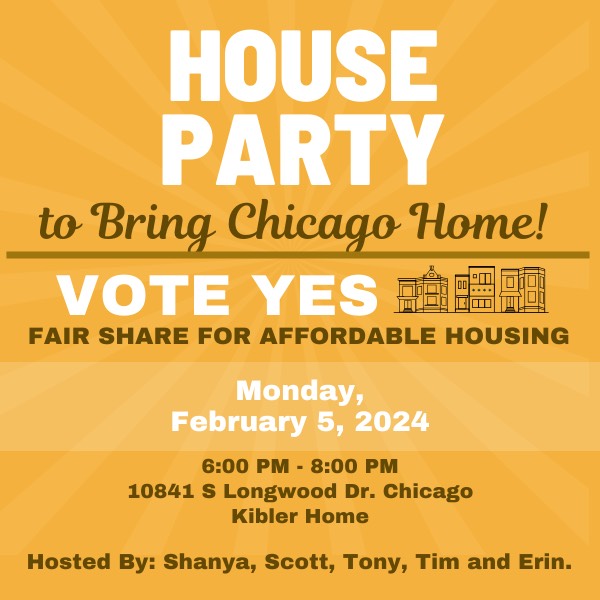The Bring Chicago Home ordinance will be on the March 2024 ballot. We are going to hear a lot of noise and misinformation regarding this ballot measure, but it is strongly in all of our interests to vote for it.
Recently, I have heard many people disparaging asylum seekers coming into our police district with the refrain, “Why don’t we take care of our homeless veterans? Why isn’t money going into our neighborhoods?!” Well, here is an opportunity to do just that.
In a nutshell, the ordinance calls to raise the real-estate transfer tax paid on the sale of a property worth $1 million or more. If you’re buying a house or other property for less than $1 million, you would see your property transfer tax fall. Around 95% of properties [LE1] would see a tax decrease. The increase would apply to the other 4.2% of properties sold every year, very few of them in our area—but the revenue would be a huge benefit for everyone, especially the houseless.
The tax is estimated to generate at least $100 million every single year, and the revenue would be legally dedicated to programs that alleviate homelessness by providing permanent affordable housing. It would also provide wraparound services including counseling.
On January 25th, the City of Chicago did its annual Point-in-Time (PIT) Count, described as “the annual snapshot of the number of sheltered and unsheltered people experiencing homelessness on a single night in Chicago.”
Last year, the count found 6,139 people on our streets, up drastically from 3,875 in 2022. Expect to see a further spike in the number of homeless due to the city’s policy of evicting asylum seekers from city shelters after 60 days, a policy that expects families to find a place to live but doesn’t recognize the enormous burden they’re saddled with: the inability to legally work.
There are many reasons why people find themselves on the streets. Often it is the result of a failed mental health system. Yet, how can we address mental health issues while people are homeless?
Opponents of this measure paint it as a tax increase (even though it’s a decrease for most of us) and want us to continue incurring the cost of not addressing homelessness. Housing will restore dignity, promote mental health, and produce strong family bonds—all of which will pay dividends for years to come.
As Chicagoans, we cannot afford to let this opportunity pass. Do right by your neighbors and your communities by voting YES in March to “Bring Chicago Home!”

